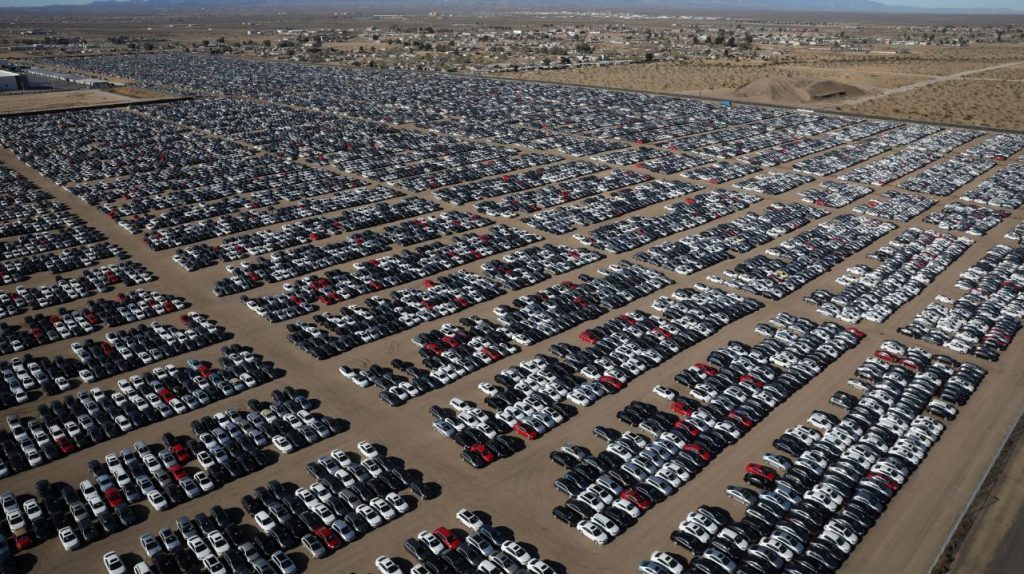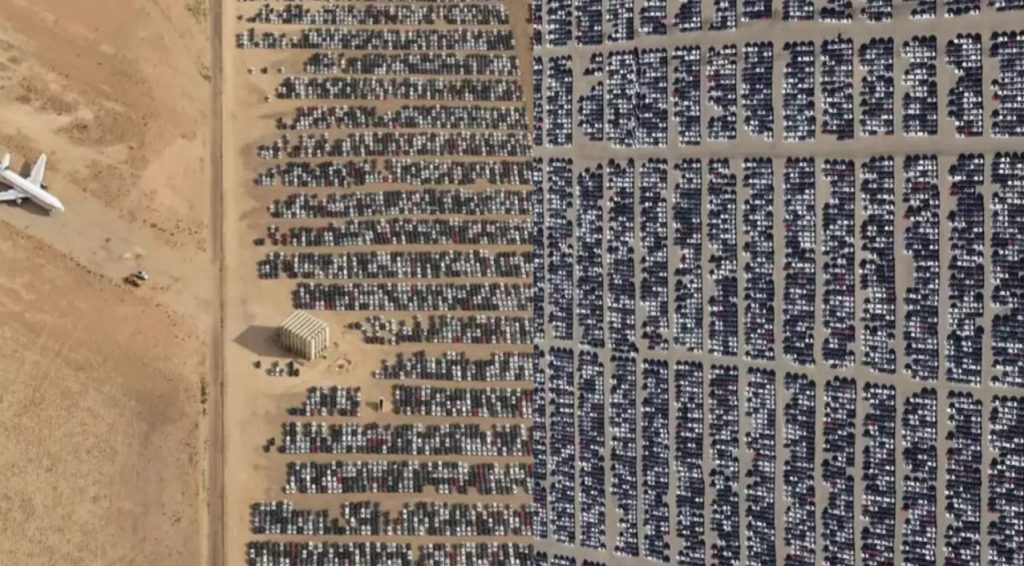Recently, an aerial photograph resurfaced online, showing thousands of Audi vehicles sitting abandoned in California’s Mojave Desert. Find out more about this in the article below.
Dieselgate: The “Defeat Device” Deception
The Dieselgate scandal broke in 2015, when the U.S. Environmental Protection Agency revealed that Volkswagen installed software in diesel vehicles—what they called “defeat devices”—designed to cheat emissions testing. While the cars would pass laboratory tests, their real-world nitrogen oxide emissions were significantly higher. The deception affected around 11 million vehicles worldwide, including various models of Volkswagen, Audi, and the Porsche Cayenne—brands under Volkswagen’s umbrella.

The Fallout: Financial Penalties and Vehicle Exile
Once exposed, Volkswagen faced staggering financial consequences. The company admitted the scandal cost it roughly $34.69 billion in fines, settlements, and remediation efforts. As a result, the implicated vehicles were removed from U.S. markets. Particularly in California, numerous affected cars were transported to and stored at a facility in the Mojave Desert.
Why the Desert? Interim Storage for a Resolution
Why did these cars end up in the desert? Volkswagen spokesperson Jeannine Ginivan clarified that the fleet was held at a storage facility in Victorville, California, to ensure responsible management. They were maintained in a state that preserved their long-term operability while awaiting emissions modifications. Ultimately, the intent was to return these vehicles to commerce or export them once regulatory approval was secured.
Environmental Irony and Public Reactions
Some internet users pointed out the unintended environmental twist: “What’s anyone really using the desert for anyway,” quipped one Reddit commenter. Another sarcastically added, “This is much better for the environment,” humorously noting that having thousands of cars off the road reduces carbon emissions. While the visuals are arresting, they reflect both regulatory impacts and the scale of corporate misjudgment.
Lessons Learned: Accountability and Transparency
The dramatic aftermath of Dieselgate underscores important lessons for automakers and consumers alike:
- Corporate Accountability: Misleading environmental tests led not only to legal and financial consequences but also physical manifestations—abandoned cars in a desert.
- Importance of Transparency: The defeat device scandal highlighted the necessity for sincere adherence to emissions standards—not just in labs, but on roads.
- Regulatory Oversight Matters: The EPA’s exposure of the deception emphasized the role of vigilant regulatory agencies in protecting public health and the environment.

Final Thoughts: From Scandal to Storage
The sea of Audis in the Mojave Desert is a visual testament to what can happen when trust is broken. Vehicles once destined for roads now stand idle, symbols of a scandal that shook an industry. Yet the story doesn’t end in neglect or abandonment. These cars were part of a broader process: being temporarily stored, upgraded, and eventually reintroduced—once cleaner and compliant. What initially appeared as a shocking environmental spectacle is now understood as part of a corrective journey—albeit one paved by deception and expensive lessons. The Dieselgate saga remains a cautionary tale in automotive ethics and accountability. Ultimately, Dieselgate is remembered not only for its environmental consequences but also for the striking Mojave images that symbolize corporate failure worldwide.

















